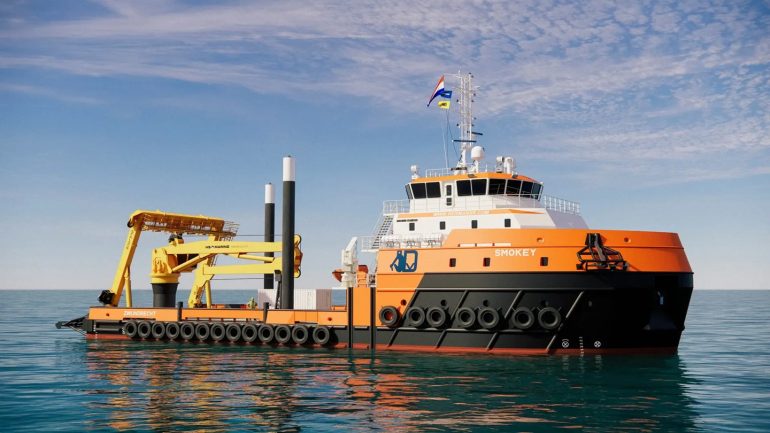Greek shipowners against the International Maritime Organization (IMO), with John Fredriksen and the country’s top shipowners leading the backlash against the net-zero framework, warning of severe economic consequences for shipping.
Fredriksen and Greece’s top shipowners are leading the revolt against the International Maritime Organization’s (IMO) Net-Zero Framework
Some of the biggest names in global shipping are rallying against the International Maritime Organization’s (IMO) Net-Zero Framework (NZF), just weeks before its expected approval in October.
John Fredriksen’s Frontline, George Economou’s TMS Group, Evangelos Marinakis’s Capital Maritime & Trading, the Angelicoussis Group, and Saudi giant Bahri are among a powerful group of tanker and dry bulk interests warning that the deal, in its current form, risks imposing “excessive economic burdens” on the industry and consumers.
The revolt, which is also backed by Dynacom, Dynagas, Centrofin, GasLog, Hanwha Shipping, Seapeak, and Stolt Tankers, adds to a growing backlash that already includes outright rejection from the United States, as well as cautionary messages from classification societies ABS and DNV.
“As it stands, we do not believe the IMO’s NZF will effectively serve to support the decarbonization of the shipping industry nor will it ensure a level competitive playing field as intended,” the shipowners said in a joint statement to Reuters, calling for “critical amendments” before its adoption.
Shipping Minister Vassilis Kikilias reiterated their concerns during London International Shipping Week, telling IMO Secretary-General Arsenio Dominguez that changes were necessary.
Dominguez, however, struck a defiant tone in London, insisting he was confident the framework would be adopted. “I base this on the history of the organization, on the cooperation that we all have, [and] on the understanding that we still have some challenges and concerns,” he told delegates.
The Net-Zero Framework, which is submitted for adoption at the extraordinary session of the Marine Environment Protection Committee (MEPC) next month, will introduce new carbon charges from 2027, as part of the IMO’s commitment to achieve net-zero emissions by 2050.
In a surprise intervention, Christopher Wiernicki, the outgoing chairman and CEO of ABS, the world’s third-largest classification society, came out against the IMO’s planned net-zero framework earlier this week.
“Shipping and the IMO are on different trajectories. There is no clear pathway for the availability and scalability of green fuels and supporting infrastructure. LNG and biofuels are critical to any success and should not be overlooked, penalized, or dismissed in the net-zero regulation,” Wiernicki said during the presentation of ABS’s 2025 Sustainability Outlook in London. “Frankly,” he added, “achieving net-zero for shipping by 2050 is looking like a coin toss.”
The US, which walked out of the April MEPC meeting, is now heavily leaning on allies and rivals to reject the IMO deal.
Washington has warned that nations proceeding with the proposed framework could face a range of retaliatory measures – from tariffs and port fees to visa restrictions.
ABS’s Wiernicki, who will step down at the end of the year, yesterday called on the IMO to take a “time out.”
“The industry needs a framework, but we need one that combines ambition with reality,” he said. “The mechanisms need to be thoroughly examined. At the moment, we are not where we need to be. Emissions remain 121% above the 2008 baseline, compliance costs are rising, and the signals shaping investments – regulation, fuel pricing, sanctions, availability, scalability – are moving at different speeds,” stated the classification head, advocating for greater support for LNG as an interim fuel.
“As we approach the 2030s, we must protect the bridge, which is LNG with methane slip controls and reliable /e-LNG pathways,” Wiernicki stated.
And the DNV classification society echoed a similar sentiment in favor of LNG last week during the presentation of its own shipping forecast report to 2050, this drew sharp criticism from Tristan Smith, a professor of energy and transport at the UCL Energy Institute in London, who implied that DNV was trying to pressure the IMO to amend the net-zero framework.
The Getting to Zero Coalition, which includes over 180 companies and many of the world’s largest and most prominent shipowners, earlier this week expressed a call for the adoption of the framework.
“Prolonged uncertainty could jeopardize very large investments —those that will be critical for the future of global trade—,” the companies stated in a joint announcement, adding: “The absence of global regulatory guidance will increase the cost of change in the long term —a cost that will be borne by the industry, countries, and consumers.”
Many have warned that failing to reach an agreement next month will open the door to a jumble of regional measures. “Not adopting the framework will create absolute investment uncertainty,” warned Patrick Verhoeven, Managing Director of the International Association of Ports and Harbors. “Achieving the IMO’s net-zero emissions targets will become impossible,” he stated at a conference in London earlier this week.
The October decision will require a two-thirds majority – 108 of the IMO’s 176 members that have ratified the relevant convention – if consensus cannot be reached.
The IMO rarely resorts to voting, but with positions hardening, a formal vote seems increasingly likely.
What is certain is that on many issues it now seems the IMO is out of step with reality, both regarding green shipping and also seafarers and the treatment they receive.





